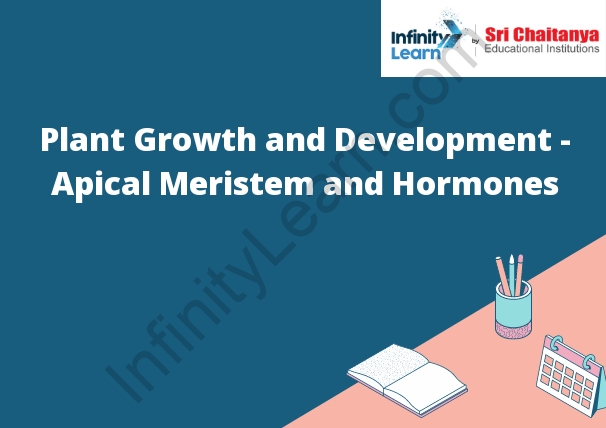Table of Contents
What are the Types of Plant Growth Hormones?
There are three types of plant growth hormones: auxins, gibberellins, and cytokinins. Auxins are responsible for the elongation of cells and the inhibition of cell division. Gibberellins are responsible for the germination of seeds, the elongation of stems, and the breaking of dormancy. Cytokinins are responsible for the initiation of cell division.

Definition of a calorie:
A calorie is a unit of measurement that quantifies the amount of energy that is provided by food. The amount of energy that is needed to raise the temperature of 1 gram of water by 1 degree Celsius is 1 calorie.
What Do You Mean by Growth and Development?
Growth refers to an increase in the size of an object, while development refers to a change in the object’s structure or function. For example, a child’s growth in height and weight is a result of both physical and chemical changes taking place in their body.
Growth and development are two terms that are often used interchangeably, but they have different meanings. Growth refers to an increase in size, while development refers to a change in function or structure.
Growth can be physical or mental. Physical growth is the increase in size of the body’s cells and tissues. Mental growth is the increase in knowledge and understanding.
Development is the process of becoming mature. It is the changes that occur as a result of experience and learning. Development occurs in all areas of life, including physical, mental, emotional, social, and spiritual.
Growth and development are important because they allow us to reach our full potential. They allow us to grow and change in ways that we never could have imagined.
What are the Processes of Growth and Development in Plants?
The process of growth and development in plants is a very complicated process that is still not completely understood. However, we do know some of the things that are involved in the process.
The process of growth and development begins with the germination of a seed. The seed contains all of the information necessary for the plant to grow and develop. The root system of the plant grows down into the soil and the stem system grows up into the air. The leaves of the plant also grow and expand.
The process of growth and development is controlled by the genetic information in the seed. The genes in the seed control the growth of the plant and tell it what type of plant it is. The genes also control the development of the plant, telling it when to grow and when to stop growing.
The process of growth and development is also controlled by the environment. The temperature, humidity, and light levels in the environment all affect the growth of the plant.
How the Growth of Tissue Happens while Plants Grow?
Plants grow through the process of mitosis, which is the division of cells. The cells in the tips of the plant, called the meristems, are constantly dividing to create new cells. These new cells push the older cells further down the plant, causing it to grow taller. The cells in the leaves are also dividing to create new cells that will help the plant to produce food.
The growth of tissue happens while plants grow in a few different ways. The first way is cell division. Cells divide by mitosis, which is the process of creating two genetically identical daughter cells from one parent cell. The second way is cell enlargement. Cells enlarge by increasing the size of their organelles and by synthesizing more cytoplasm. The third way is cell differentiation. Cells differentiate into different types of cells, such as root cells, stem cells, and leaf cells. The fourth way is cell migration. Cells migrate to different parts of the plant in order to fill in the gaps and to create new tissue.
What is Apical Meristem?
The apical meristem is a type of meristematic tissue found at the tips of plant stems and roots. It is responsible for the growth of new tissue in these organs. The apical meristem is composed of undifferentiated cells that are capable of dividing and generating new tissue.
What are Plant Growth Regulators?
Plant growth regulators are chemicals that control the growth of plants. They are used to promote or inhibit growth, to produce desirable plant shapes, and to manage the time of flowering.
Plant growth regulators, or PGRs, are chemicals that affect plant growth. They can be used to promote or inhibit growth, to change the shape of a plant, or to change the color of flowers.
PGRs are used in horticulture to produce plants with specific characteristics. For example, PGRs can be used to produce dwarf plants, plants with large flowers, or plants with colored foliage.
There are several types of PGRs, including auxins, cytokinins, gibberellins, and ethylene. Each type of PGR has a specific effect on plant growth.
Auxins are a type of PGR that promote growth. Cytokinins are a type of PGR that inhibit growth. Gibberellins are a type of PGR that promote elongation of stems and leaves. Ethylene is a type of PGR that promotes the ripening of fruits.
PGRs are also used in agriculture to produce crops with a specific yield. For example, PGRs can be used to produce crops that yield more grain, or crops that yield more fruit.
PGRs are also used in forestry to produce trees with a specific height. For example, PGRs can be used to produce trees that are shorter in height, so that they are easier to harvest.
PGRs are a valuable tool for horticulturists and farmers. They allow growers to produce plants with specific characteristics, which can improve the quality and yield of crops.









